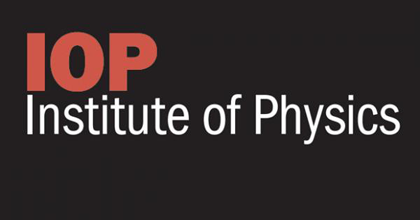
Research councils, publishing houses, libraries and learned societies need to tailor their efforts to help physical scientists gather, manage and share research information.
Following interviews and focus groups with researchers in seven contrasting research contexts, a new report,Collaborative yet Independent, identifies the range of contemporary challenges facing physical science researchers in a fast-evolving information landscape.
The seven research cases analysed for the report, commissioned by the Research Information Network (RIN), the Institute of Physics (IOP), IOP Publishing (IOPP) and the Royal Astronomical Society (RAS), demonstrate the richly varied ways in which physical scientists work, collaborate and share information and data.
Investigating the research habits of particle physicists, gamma ray burst astrophysicists, nuclear physicists, chemists, earth scientists, nanoscientists and the group of researchers who pioneered the Zooniverse platform, the report makes a series of recommendations to research councils, publishing houses, librarians and learned societies.
RIN director Michael Jubb said, “As the information landscape evolves, research groups are navigating their own ways to ensure that they are able to gather and manage the information they need in the most efficient and effective way.
“Stakeholders in research councils, learned societies, publishing houses and libraries need to identify the different trends to ensure they are equipping researchers with the most fitting resources and skills.”
The report details many of the differences between the research groups, from the real-time research needs of particle physicists and gamma-ray burst astrophysicists to the premium placed by nuclear physicists and earth scientists on journals and peer-connections.
Professor Sir Peter Knight, president of the Institute of Physics, said, “The report shows that one size does not fit all. Having led the way in sharing and processing information through pioneering use of the web and grid computation, particle physicists, like those at CERN, rely on real-time data from particle collisions, while earth scientists, for example, who straddle a very wide range of traditional disciplines, are more concerned with access to journals and the information they can glean from their peers, both informally and at, for example, academic conferences.”
Professor Roger Davies, President of the Royal Astronomical Society commented: “The RIN report shows how the research astronomers and citizen scientists on the Zooniverse project are breaking new ground, not only in the way they involve the wider community in research but also in their willingness to embrace novel ways of sharing information. From cataloguing galaxies to finding planets around other stars, this is an approach that is really paying dividends.”
The report concludes with recommendations for:
- Research councils to increase efforts to link and share data;
- publishers to focus on the information landscapes of their target audiences and to build tools that meet the specific needs of those audiences;
- for learned societies to focus on creating opportunities for training which links experts who are using new information management techniques with their peers;
- and, for librarians to reinvent their roles while ensuring that researchers recognise their role as scientific consultants.
This report is the third in a series from RIN on research information management, following reports on both the information management practices of life sciences and humanities researchers.
The report, which was authored by researchers from the Oxford Internet Institute, the London School of Economics, University College London, the Royal Netherlands Academy of Arts and Sciences, Maastricht University and the Oxford e-Research Centre, can be found at www.rin.ac.uk/phys-sci-case.



























